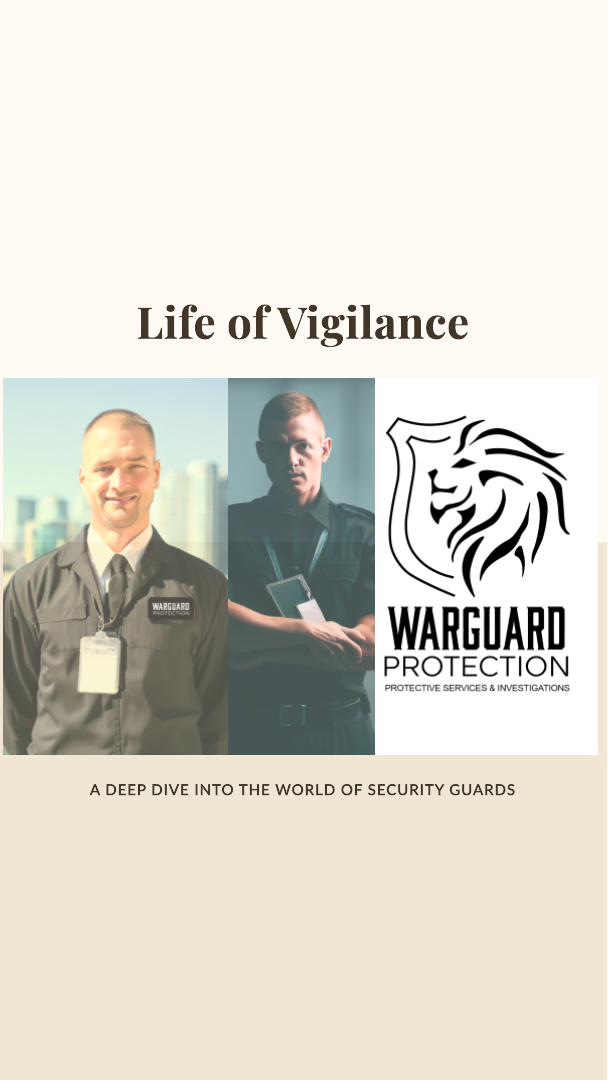- 2023-09-01 23:44:17
Unlocking 10+ Pathways In Security: Opportunities From Ground Up!
Unlocking 10+ Pathways in Security:
Opportunities from Ground Up!
Dive into the expansive world of security and explore
the myriad roles and opportunities available. From front-line guards to
leadership roles, we break down the diverse Pathways in Security: Explain the
different roles and opportunities available in the security sector, from
front-line guards to management roles.
Pathways in Security: Explain the
different roles and opportunities available in the security sector, from
front-line guards to management roles.
The realm of security isn't limited to the
stereotypical image of a guard standing at a gate. From cyber experts battling
virtual threats to managers setting security policies, the sector offers a
multitude of roles, each with its own set of challenges and rewards. This vast
field not only provides job security but also allows for significant growth and
development.
Foundations of Security
The importance of front-line guards
Front-line guards form the visible backbone of the
security industry. Their presence often acts as a deterrent, preventing
potential miscreants from even attempting a breach. Beyond this, their keen
observational skills and quick response can be instrumental in neutralizing
threats.
Role of technology in security
The use of advanced technology has become inseparable
from modern security measures. Biometric systems, advanced alarm
configurations, and facial recognition technologies are just the tip of the
iceberg. They've not only made establishments more secure but also opened new
career avenues in the tech side of security.
First-hand experience: A day in the life
of a guard
For someone like Don, every day brings its own set of
challenges. From screening visitors, monitoring surveillance footage, to
reporting suspicious activities, every aspect of their role demands vigilance.
This isn't just a job; it's a commitment to safety.
Intermediate Security Roles
Surveillance and monitoring roles
Behind the scenes, there's an entire brigade
constantly watching over the footage from hundreds of cameras, ensuring that no
anomaly goes unnoticed. Their meticulous monitoring complements the efforts of
on-ground personnel, ensuring a comprehensive security net.
Specialized security teams: Cybersecurity
and more
In an era where digital threats loom large,
specialized cybersecurity teams play a critical role. Their expertise extends
beyond conventional systems, encompassing cloud security, network
fortifications, and even protection against sophisticated malware.
Transitioning from front-line to
intermediate roles
The transition from on-ground duties to more
specialized roles is often facilitated by training programs and courses. These
provide the necessary skill set and knowledge to handle advanced security
tasks.
Advanced Security Opportunities
Management roles in security
Management roles in security aren’t just about
overseeing personnel. They encompass setting protocols, liaising with other
departments or companies, and ensuring that the security measures are always
ahead of potential threats.
The role of security consultants
Security consultants operate at a macro level,
identifying potential vulnerabilities and suggesting holistic measures to
counter them. Their role often involves keeping abreast of global security
trends and applying them in local contexts.
The importance of continuous learning in
security
The security landscape is constantly evolving. New
threats emerge as old ones are countered. For professionals in the sector, this
means that learning never stops. Be it a new surveillance technology or a novel
hacking technique, staying updated is crucial.
The Evolution of Security Roles
Changing dynamics and the rise of
tech-driven security
As we progress further into the digital age, the
nature of threats has also shifted. Phishing attacks, ransomware, and data
breaches have become commonplace. This has necessitated the integration of
technology in almost every facet of security.
Importance of adaptability in security
roles
The only constant in the security sector is change.
With rapidly evolving threat vectors and equally quick advancements in
countermeasures, adaptability is an invaluable trait for any security
professional.
The future of security: A blend of man and
machine
AI and machine learning are no longer just buzzwords;
they are integral parts of advanced security setups. They enhance human
efforts, leading to a future where man and machine work in perfect harmony for
comprehensive security.
Security Training and Certification
Essential training for entry-level roles
For beginners, there's a slew of foundational courses,
ranging from basic surveillance techniques to emergency response training.
These equip them with the skills required to excel in their roles.
Advanced certifications for management
roles
For those eyeing leadership roles, advanced
certifications delve into strategic aspects of security, policy formation, and
cross-departmental coordination.
Personal experiences: From novice to
expert
Rosa's journey from a rookie guard to a security
manager is a testament to the growth opportunities in the sector. Continuous
learning, coupled with on-ground experience, can propel one to great heights.
Security's Broader Impact
Ensuring public safety
The ripple effects of a robust security infrastructure
are far-reaching. They create an environment where businesses thrive, and the
public feels safe, indirectly promoting socio-economic growth.
Economic impacts of a robust security
sector
Security isn't just a protective measure; it's an
enabler. A fortified establishment attracts business, investments, and
clientele. This in turn drives economic growth.
Security as a public trust
In the larger picture, every individual in the
security sector is a custodian of public trust. Their efficiency and dedication
directly influence public perception, making their role invaluable in society.
FAQs
How has technology impacted traditional security roles?
Technology has both enhanced and redefined traditional security roles. While it
has provided tools like surveillance cameras and biometric systems for better
security, it has also paved the way for roles in cybersecurity.
What skills are essential for front-line
guards?
Vigilance, quick decision-making, effective communication, and a basic
understanding of technology are crucial for front-line guards.
How can one transition from basic to
advanced roles in security?
Continuous learning, gaining relevant certifications, and accumulating
experience can help professionals transition to advanced roles.
Is cybersecurity the future of the
security sector?
While cybersecurity is undeniably a significant aspect of modern security,
traditional roles remain vital. The future lies in a blend of both.
Why is continuous learning essential in
the security sector?
The
security landscape is ever-evolving. To stay ahead of potential threats and
leverage new technologies, continuous learning is indispensable.
How does security impact public trust?
Security fosters a sense of safety. When people trust the security apparatus,
it enhances community bonds and fosters public trust.
Conclusion
Security, in its many forms and facets, remains one of
the most dynamic and rewarding sectors. The symbiotic relationship between
technology and traditional security practices promises a future rife with
opportunities. From the vigilant guards to tech wizards, everyone plays a
pivotal role in crafting this shield that protects our societies, economies,
and way of life.







